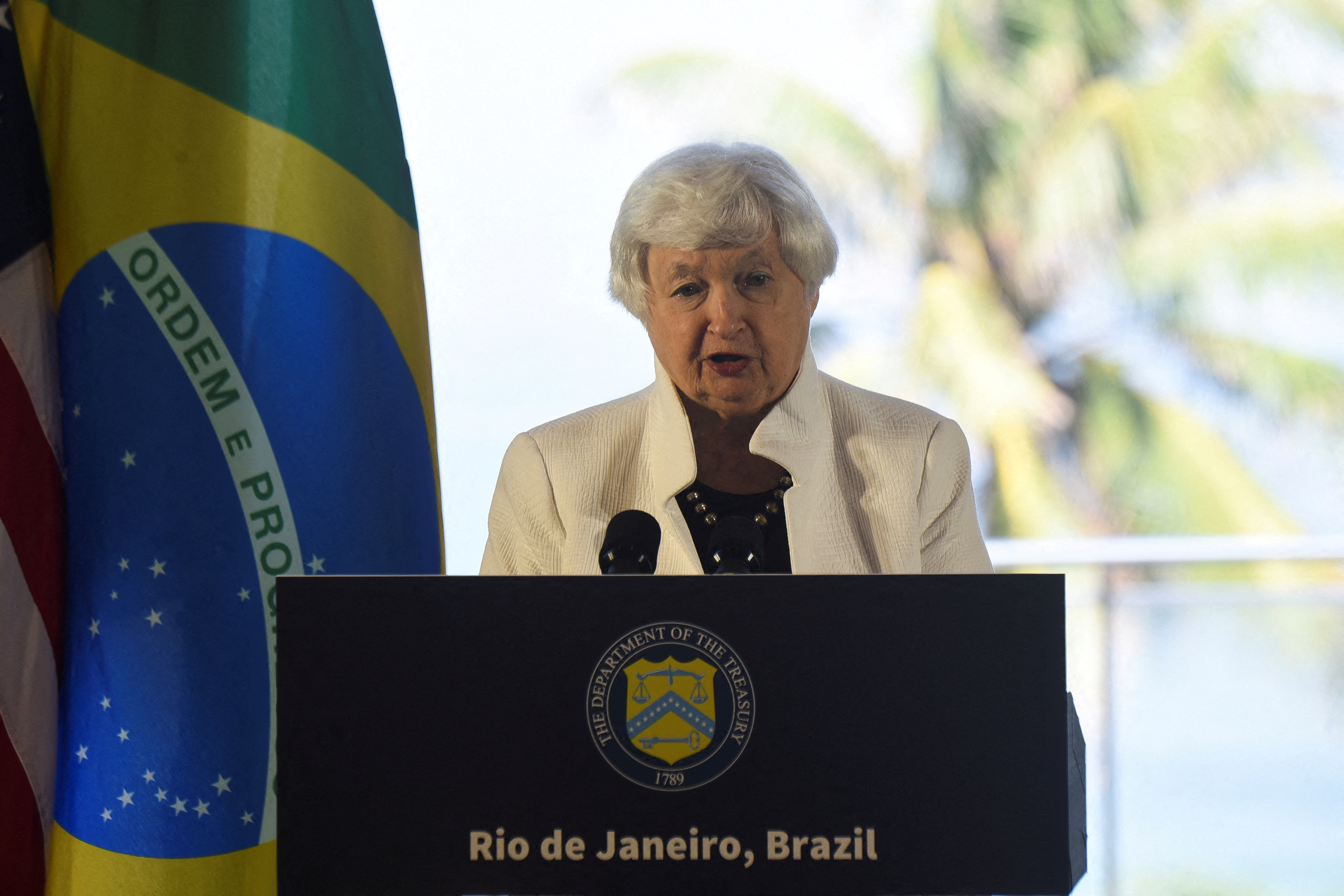Yellen: $3 Trillion Yearly for Climate Financing
Hyphen Web Desk

Yellen emphasized the necessity for substantial financial commitments during a speech at the United Nations Climate Change Conference. She pointed out that the current investments fall significantly short of what is required to mitigate the impacts of climate change and transition to a sustainable economy. The Treasury Secretary stressed the importance of global cooperation and innovative financing mechanisms to bridge this funding gap.
The $3 trillion target underscores the scale of the climate challenge and the financial effort needed to combat it. This includes investments in renewable energy, climate resilience projects, and technology development to reduce greenhouse gas emissions. The private sector, public funds, and international financial institutions are expected to play crucial roles in mobilizing these resources.
Despite the pressing need, current climate financing efforts are lagging. According to the Climate Policy Initiative, global climate finance flows reached approximately $632 billion in 2021, a fraction of the required $3 trillion. This disparity highlights the need for urgent action and increased contributions from both developed and developing countries.
Yellen called for a coordinated global response, urging nations to enhance their financial commitments and support innovative funding solutions. She highlighted the potential of green bonds, carbon pricing, and public-private partnerships to mobilize the necessary resources. Additionally, Yellen advocated for reforms in international financial institutions to better support climate-related projects.
The impact of inadequate climate financing is already being felt worldwide. Extreme weather events, rising sea levels, and changing weather patterns are causing significant economic and social disruptions. Developing countries, which are often the most vulnerable to climate impacts, face the greatest challenges in securing sufficient funding for climate adaptation and mitigation.
Yellen’s call to action comes at a critical time, as nations are striving to meet the goals of the Paris Agreement. The agreement aims to limit global warming to well below 2 degrees Celsius above pre-industrial levels, with efforts to limit the increase to 1.5 degrees Celsius. Achieving these targets requires unprecedented levels of investment in clean energy, energy efficiency, and climate resilience.
Yellen also addressed the role of the private sector in driving climate finance. She emphasized that private investments are essential for meeting the $3 trillion target. Financial institutions, investors, and corporations need to align their portfolios with climate goals, ensuring that their investments contribute to a sustainable and resilient future. This alignment involves integrating environmental, social, and governance (ESG) criteria into investment decisions and supporting green technologies and projects.
Moreover, Yellen underscored the importance of public policies in creating an enabling environment for climate finance. Governments need to implement robust policies and regulations that incentivize green investments and disincentivize carbon-intensive activities. This includes carbon pricing mechanisms, subsidies for renewable energy, and regulations that promote sustainable practices across various sectors.
The call for $3 trillion in annual climate financing is not just about preventing the worst impacts of climate change; it is also about seizing economic opportunities. Investments in clean energy and green technologies can drive economic growth, create jobs, and enhance global competitiveness. Yellen highlighted that a well-funded climate strategy could lead to a sustainable economic transformation, benefiting both current and future generations.
Yellen’s appeal for increased climate financing is a crucial reminder of the significant financial resources needed to tackle the climate crisis. It calls for immediate and coordinated action from governments, the private sector, and international institutions to ensure a sustainable and resilient future. The stakes are high, and the time for bold financial commitments and innovative solutions is now.
Labels:
#Syndication
Share:
